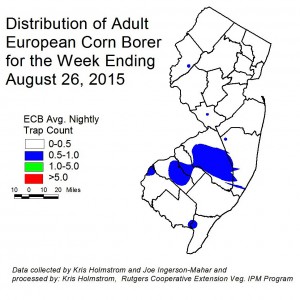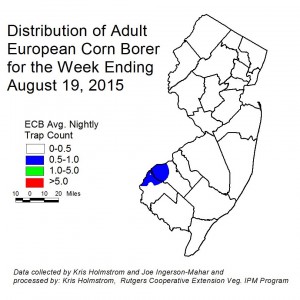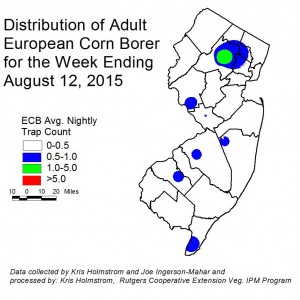Sweet Corn
European corn borer (ECB) adult catches have become somewhat more consistent in southern NJ over the past week, but with very few individuals captured north of Burlington County (see ECB map). This late summer flight appears to be a fairly week one. As always, consider treating when the number of infested plants in a 50 plant sample exceeds 12%. Any planting remaining at or above threshold as it proceeds to full tassel should be treated, as this is the last stage at which ECB larvae will be exposed and vulnerable to insecticidal sprays.
See the 2015 Commercial Vegetable Recommendations Guide for insecticide choices.




